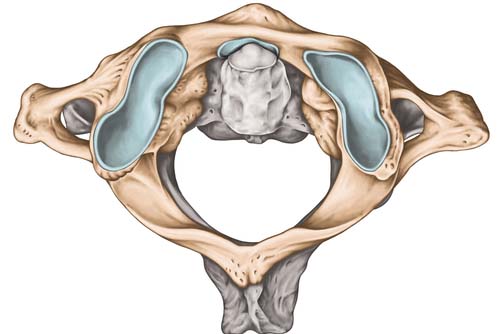In almost every article on this blog, we have discussed about joint subluxations as the core reason for many health issues. From pain and numbness to digestive problems and ringing in your ears, we explained that a subluxation is the real cause of these symptoms. Since many of you wondered, we decided to dedicate an article to a detailed discussion on joint subluxations.
What Is a Subluxation?
The subluxation is a partial dislocation of the joint. Any joint consists of a combination of bones, cartilages, muscles, and ligaments. They fit together like the pieces of a puzzle and allow smooth motion to the fullest range. When a subluxation occurs, one of these elements, usually a cartilage or a bone slips out of its natural position.
Despite the fact that we mostly talked about spine subluxations, this condition can affect almost all the joints in the human body.
Causes and Symptoms of Joint Subluxations
A subluxation can be caused by several issues:
- Physical trauma – such as falling down or getting hit
- Overuse of the respective joint in work or sports
- Hyperextension – when a joint is extended beyond its normal range of movement.
Although minor subluxations can go unnoticed, in most of the cases the patient is aware that something is wrong. The most frequent symptoms of joint subluxation are:
- Sensation of instability
- Pain and swelling in the area
- Loss of movement or limited mobility of the joint
- Numbness
- Bruising.
As we said above, almost all the joints may suffer from subluxation, but some are more at risk than others. We will detail them below in decreasing order of risk.
Types of Joint Subluxation
1. Vertebral Subluxation
The spine is probably the biggest series of joints in the human body and the most vulnerable to wear and tear. The spine keeps us in an erect position and has to bear all the extra load we carry in our hands or on our backs.
Thus, vertebral subluxations are very frequent. From a herniated disc (one of the most serious types of subluxations) to very slight misalignments, any subluxation of the spine puts pressure on the spinal cord and causes a wide range of conditions and symptoms in the human body.
2. Shoulder Subluxation
When we fall down, we tend to put our hands forwards instinctively. While this may break the fall and protect the head and torso, it may also cause the shoulder bone to pop out of the socket in the shoulder blade.
Alternatively, this type of joint subluxation may be caused by continued repetitive rotating movements of the shoulder, which cause the ligaments to become loose. This situation is frequent among tennis, baseball, and volleyball players.
3. Knee Subluxation
This type of subluxation is quite frequent among children and teenagers. It is caused by a sudden fall on the knee, causing the kneecap to become dislocated. As children learn to bicycle, skate or rollerblade, this is a very common injury.
4. Elbow Subluxation
Elbow subluxation can be the result of trauma or overuse (this situation being better known as the tennis elbow condition). Unfortunately, many parents cause their small children this type of subluxation by mistake, when they lift them in the air by the hands and swing them. During the first years of life, the elbow is not fully developed to support the child’s weight.
Elbow subluxations often go undiagnosed for a long period of time in adults, because the joint may appear to be working properly.
Why Should You Try Chiropractic for a Joint Subluxation?
Chiropractors probably know more about the joints in the human body than other doctors. Our specialization focuses on identifying joint subluxations and helping them return to the natural position in a non-invasive manner.
Although chiropractic manipulations appear strong and energetic, in reality the specialist applies the exact pressure necessary to achieve the maximum benefit with minimum discomfort for the patient.
If you feel any kind of pain or difficulty in moving a joint, call our clinic and book an appointment. We will give you a thorough physical examination, identify the issue and create a custom treatment plan for you. Contact us today!

